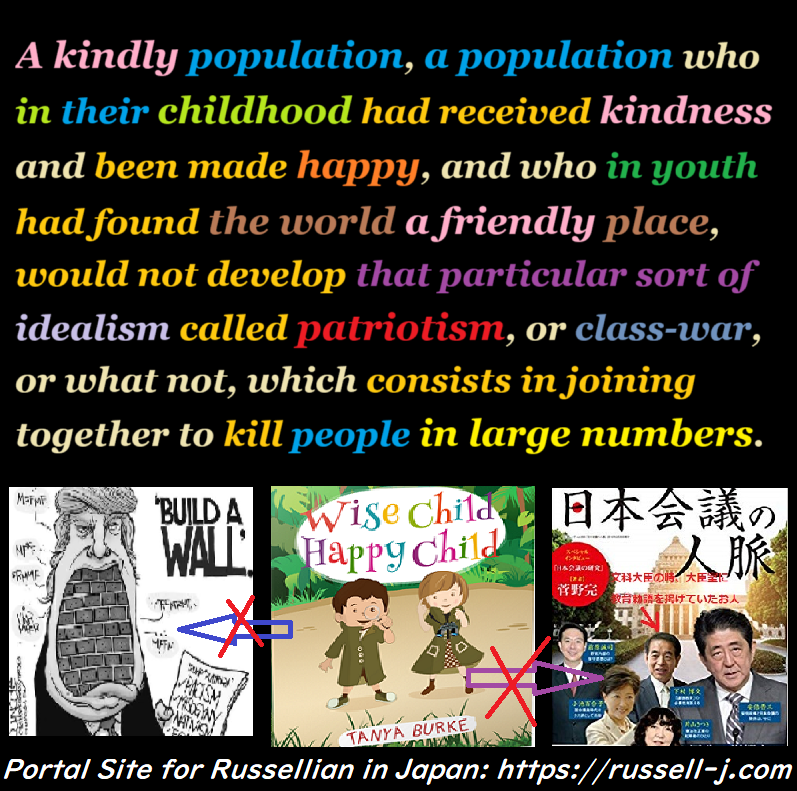
 ラッセル関係電子書籍一覧 |
Source: Power, 1938.
More info.:https://russell-j.com/beginner/POWER18_310.HTM
* a brief comment:
Countries such as China, Russia, North Korea, and Iran have long been cited as examples of authoritarian regimes, where political power is concentrated in the hands of a small group of leaders or a single party, and democratic institutions either exist only in form or do not function in practice.
However, with President Trump having returned to office this March for his second term, the United States is now increasingly seen as exhibiting authoritarian tendencies as well, due to his style of governance.
Ironically, while China continues to maintain its one-party Communist rule, it has begun criticizing America's unilateralism and, while "hiding its sharp edges," has started advocating the importance of international cooperation, a reversal of roles that would have once seemed unthinkable.
This leads one to wonder: what kind of childhood did President Trump have?
Anyone who agrees with today's quote from Bertrand Russell would likely believe that *“those who were treated kindly and were happy as children do not tend to develop patriotic fervor, in its more violent forms, or related kinds of idealism that seek to dominate other nations or peoples.”*
If that is the case, then perhaps there was some hardship in Trump's early life that hindered the development of empathy.
Under the banner of "America First" and the slogan "Make America Great Again," President Trump consistently pressures other countries and frames negotiations as "deals" in which the U.S. (or more precisely, he himself) assumes the upper hand. If "deal" meant a fair agreement among equals, there would be little problem. But perhaps believing he cannot prevail through logic or persuasion, he always seeks to draw other nations, especially weaker ones, into one-on-one negotiations where he holds more power.
If every country were to avoid such bilateral deals and instead join forces within multilateral frameworks, it might be possible to change President Trump's approach. But so far, it seems only the United Kingdom, America's closest ally, has succeeded in doing so. For Japan, whose political leaders have long followed in America's footsteps, such a task appears to be too great, and that is cause for concern.
* Amazon Gift Card
